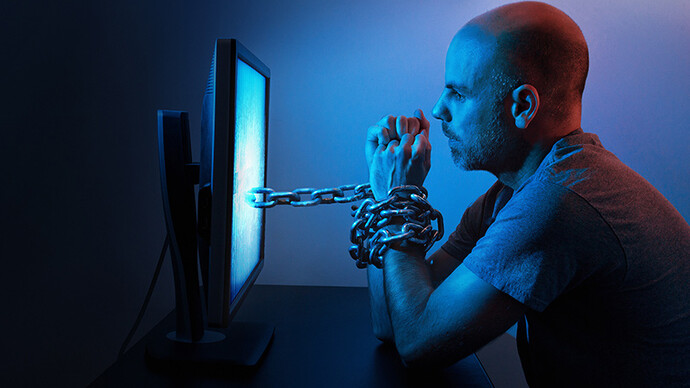Advertisements and magazines have always been criticized for endorsing dangerous, unrealistic standards and perceptions of beauty and achievement, but at least it’s acknowledged that they are idealized. Celebrities and models you see on the pages are just that and they are crafted, perfected, and retouched for you to glorify and idealize. In these times, however, the increasingly impossible standards are also set much closer to home, not by celebrities and models but by classmates, social circles, and peers. With social media, teens and young adults especially can create their lives, showing only the best and most desirable moments while concealing efforts, struggles, and the fairly normal aspects of everyday life. There is evidence that these aspects of social media are causing distress and serious concerns for many people.
For kids of impressionable ages, especially those struggling with anxiety and depression, edited social media can act as concealment, masking important issues behind faked perfection and making it more difficult for others to see that they need help.
Teens who have created their ideal online personas may feel confused at the division of who they pretend to be and their actual identity. Another important factor is that for some teens, their social media can ignite negative attitudes they have toward themselves and assist self-esteem and identity problems.
Those struggling with self-doubt read into their friends’ images, what they feel they are lacking, and pinpoint every imperfection they themselves have. Consistent exposure to social media has had an impact on how they view themselves and their peers to which even the acknowledgement that social media masks serious problems does not seem to alleviate the pressure. Social media has quickly become an intense, invasive presence whether people that a lot of people learn to merely tolerate.
While social media has often been hailed as a remedy for loneliness, which may be true in some circumstances, good evidence suggests that excessive use negatively impacts one’s self-esteem and overall life satisfaction. Research has also correlated links to an increase in mental health problems. Consistent rising rates in depression have correlated to a rise in smartphone use. Social media may lead to deep problems with self esteem, especially for pre-teen and teenage girls between ages 11-14. This age group is already more likely to be fronted with self esteem problems as they are figuring out their identity, they are also being subjected to comparison, emphasizing appearances and social standing. They are faced already with messages about who they should be and what is considered acceptable, popular, and even enough. Needless to say it doesn’t exactly benefit them when they enter in the social media and digital atmosphere where comparison is extremely rampant and arguably the focal point.

Social media also has the ability to evoke intense emotions and unfortunately, studies have shown that social media has the ability to be even more addictive that of alcohol or cigarettes. In hind- sight this may be largely because the internet is free and more accessible and to some, considered harmless.
While social media is unlikely to help develop your self-worth, there are proven things you can do to combat low self esteem and reduce risk of declining your mental well-being.
With depression and anxiety being a serious issue today, a stronger focus on positive ways to build healthy self-esteem is crucial. By establishing boundaries and moderating your time on social media, you can prevent negative effects and create a more healthy and fulfilling life.

I have to say I agree with your view 100%, my high school suffered from a lot of people getting cyber bullied and it got so bad that my school ended up banning cellphones. While social media is a great way to connect people it also has a lot of negative issues, and to be honest, I don’t know if the benefits are worth it.
Social media has been a hot topic for as long as I can remember, and I remember how frustrated I was when I grew up in a household without social media. My parents aren’t on any forms of social media (except maybe LinkedIn) and wouldn’t let me get Instagram until high school. However, as a result of almost all of these negative effects that you mentioned, I ended up deciding to delete my social media, despite begging to have it for so many years. I think it’s really important for us to continue weighing the risks and benefits of using social media, and make sure we are conscious of the ways it affects us so powerfully.